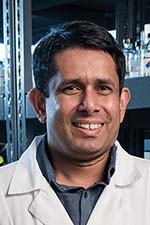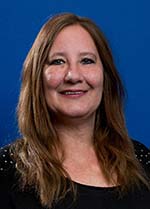AC duo to present paper on virtual science labs at conference in Spain
Dr. Asanga Ranasinghe, Distinguished Research Scientist at Amarillo College, and Lisa Soper, instructional designer at AC’s Center for Teaching & Learning, soon will present findings of their collaborative research at a conference in Spain.
Ranasinghe and Soper have been invited to the 26th International Conference on Interactive Collaborative Learning (ICL) Sept. 26-29 in Madrid, where they will share the results of a study they conducted at AC on the viability of virtual science labs.

Their statistical-analysis paper, to be presented on Sept. 29, is titled, “Work in Progress: Integration of Adaptive, intuitive, and virtual environments in the classroom to have an enhanced learning experience and to achieve higher student success rates.”
Additionally, Ranasinghe has been invited to chair an ICL session on Sept. 28 focused on remote learning methodology in engineering.
The paper details the AC duo’s assessment of the effectiveness of remote and virtual simulated science laboratories – which rose to prominence during the pandemic – now that in-person labs are again perfectly plausible.
For their study, Ranasinghe and Soper employed Labster, a software program that simulates lab environments, for which they received funding through the $4.8 million Hispanic-Serving Institutions STEM Grant the College received in 2021. Nine faculty and 235 students participated in lab simulations during the study.

What they concluded is that remote science labs are not only safe, cost-effective and especially convenient for students who often must travel from afar to attend in-person labs, but they actually are capable of fostering better learning outcomes and greater engagement than some in-person labs they could conceivably replace and/or reinforce.
“Our goal is to ensure a better lab experience for students,” Ranasinghe said. “When new technology presents itself that can improve student learning outcomes while streamlining the educational process – setting up students for future success, whether at the university level or in the workplace – I believe we need to incorporate that technology into the student experience.
“We believe the use of simulations in the lab, combined with practical hands-on learning, creates a valuable addition to the educational curriculum,” he said.
As AC’s Distinguished Research Scientist, Ranasinghe is empowered to, among other things, attend conferences to network and collaborate with peers in the advancement of scholarly work. He and Soper will represent AC in Madrid in that vein.